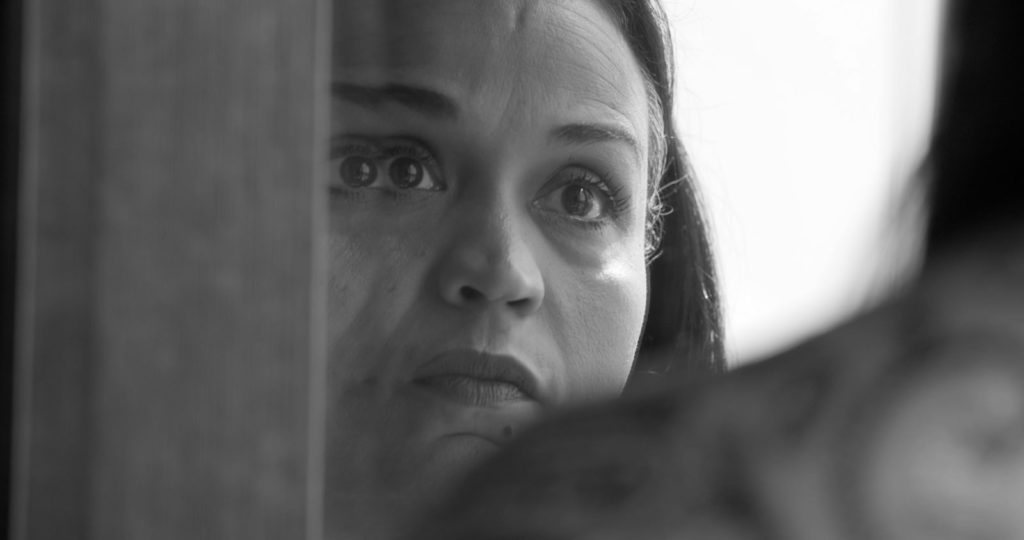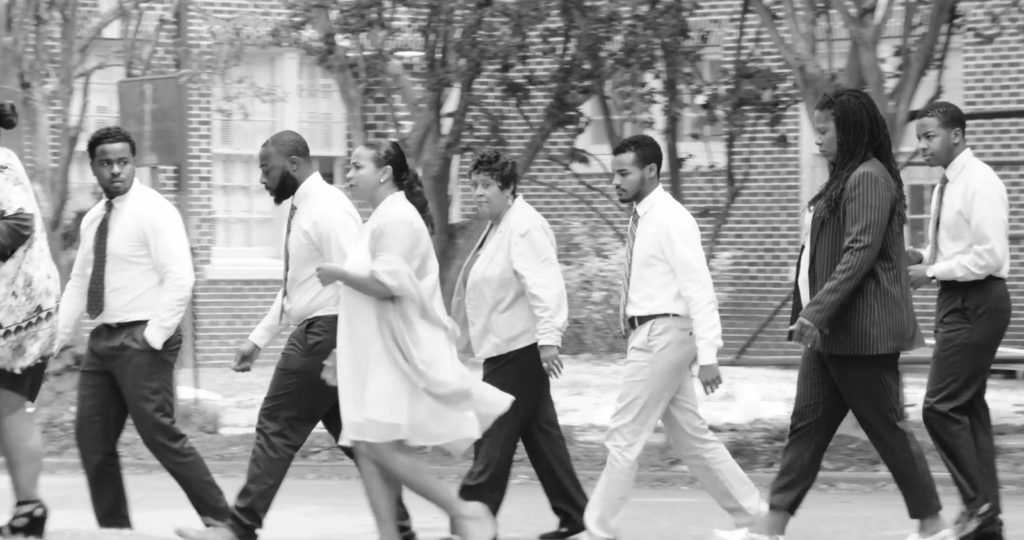
Film Review: Time
Directed by Garrett Bradley. US, 2020, 81 minutes.
Available with subscription to Amazon Prime.
It’s difficult to separate Time, the widely acclaimed new documentary about the evils of the American prison system, from its acquisition by Amazon, a company whose ties to and complicity in mass incarceration have been well documented. Of course the film had a life before it was picked up for distribution at Sundance, where it was at the center of a bidding war between companies eager to secure the rights to the most buzzed about film of the festival. But since the film went to Amazon and was released on Prime Video, it will largely be consumed by subscribers browsing subcategories like “Documentary Movies,” where you can currently find the film slotted right next to other Prime-licensed docs like The Plot Against the President (2020).
It would be easy to dismiss this as just another example of the compromises filmmakers make in order to get their work seen—if not distribution by a multi-billion corporation run by a mediocre Bond villain, then maybe a screening at a stodgy old arts institution currently in the process of preventing its employees from unionizing, or something equivalently troubling. But the cognitive dissonance caused by seeing Amazon’s logo open Time is undeniable, and I’d be lying if I said it didn’t affect my relationship to the work, immediately putting me in a position of skepticism toward a film about which I’d heard nothing but great things.
Time tells the story of Sibil Fox Richardson (aka Fox Rich), who, after being released from prison herself, spends years advocating for the release of her husband while raising their children as a single mother. Director Garrett Bradley uses both her own slick high-definition footage of the family in recent times and low-grade home-video footage recorded by Rich across the many years prior, both shooting formats presented in black-and-white to make the transitions between them more seamless. And while interviews with the Richardson family and scenes of Fox speaking at her church provide a running commentary on the events of the film, Bradley seems to prefer the poetic to the expository, editing to craft a fluid experience that relates how time is felt by those on the outside waiting for their loved ones to return home from prison.
It’s a project so grand that it paradoxically ends up limiting the film’s scope, miring it in an ambitious metaphysical statement which obscures some of the material’s more interesting questions. So it took me by surprise when, about an hour into the film, Rich calls herself an abolitionist—not because it seemed out of character, but because I realized the term, which has often been utilized in press and criticism surrounding Time, had never been used in the film until that point. Indeed it’s the only instance in which the word is mentioned, and it would be easy to forget it by the intense emotional climax.

If Time is intended to be a condemnation of the prison-industrial complex, it seems important to engage with abolition as a concept, if only to examine how it motivates and relates to Rich’s struggles to work within the system to free her husband. Instead, Bradley eschews the specifics of politics—both her subject’s personal politics and those involved in the bureaucratic parole process—and appeals to the audience purely through pathos.
There are effective examples of this approach. Throughout the film, we see Fox Rich on the phone with lawyers, judicial secretaries, and other public employees, albeit only enough to get a vague idea of what steps she’s actually taking to accelerate the parole process for her husband. What seems more important to Bradley is illustrating the feeling of wading through an uncaring bureaucratic system in order to reunite one’s family, which expresses a sense of the whole systems’ injustices. But leaving these conclusions to the viewer’s discretion also results in moments that come dangerously close to ideological doublespeak, as in the film’s final section. In one interpretation of Time, the ending, in which Rob Rich is finally reunited with his family, is a vision of an abolitionist horizon where all prisoners are freed; but in another, it is a testament to the hard work done by Fox Rich and her legal team, working within a grueling system which, though it is in need of serious reform, ultimately rewards their persistence and allows for the possibility of rehabilitation.
Surely, I hear you object, the latter reading is a gross, deliberate misinterpretation of the film. I’m not so sure—a gross misinterpretation of the reality of the situation perhaps, but not of the film itself, which repeatedly stresses how the Rich family have succeeded despite their hardships, achieving their American Dream with a crucial piece missing. Ultimately, and not without putting up a fight, the American system returns that piece to them, and the promise of the Dream is made complete. What of those who are not so lucky—whether the families who never got to bring their relatives home, or those incarcerated who don’t have a comparable support system fighting for them on the outside? This is another one of the film’s artful elisions, another of its implied conclusions that has no material basis in the actual work.
Either way, I don’t think it’s too much to ask for a film being promoted with press releases like “In our collective effort with Amazon Studios, we are excited to share the values of the film…” to be clear about its values. We’ve seen how Time operates as a work of art, for cinephiles and festival-goers, and in the pages of publications like The Atlantic or The New York Review of Books. But how will it operate as a product within the greater marketplace of Prime Video? The Amazon logo placed in front of Time recontextualizes it entirely, framing it as a film that’s now been fully mined for its inspirational feels, and its portrayal of perseverance against all odds and enduring love in the face of a system requiring some Big Structural Change. I wish I could say Time rejects that reading, but it suggests very little beyond it. [★★½]
Etan Weisfogel is a film and media critic based in Brooklyn.

